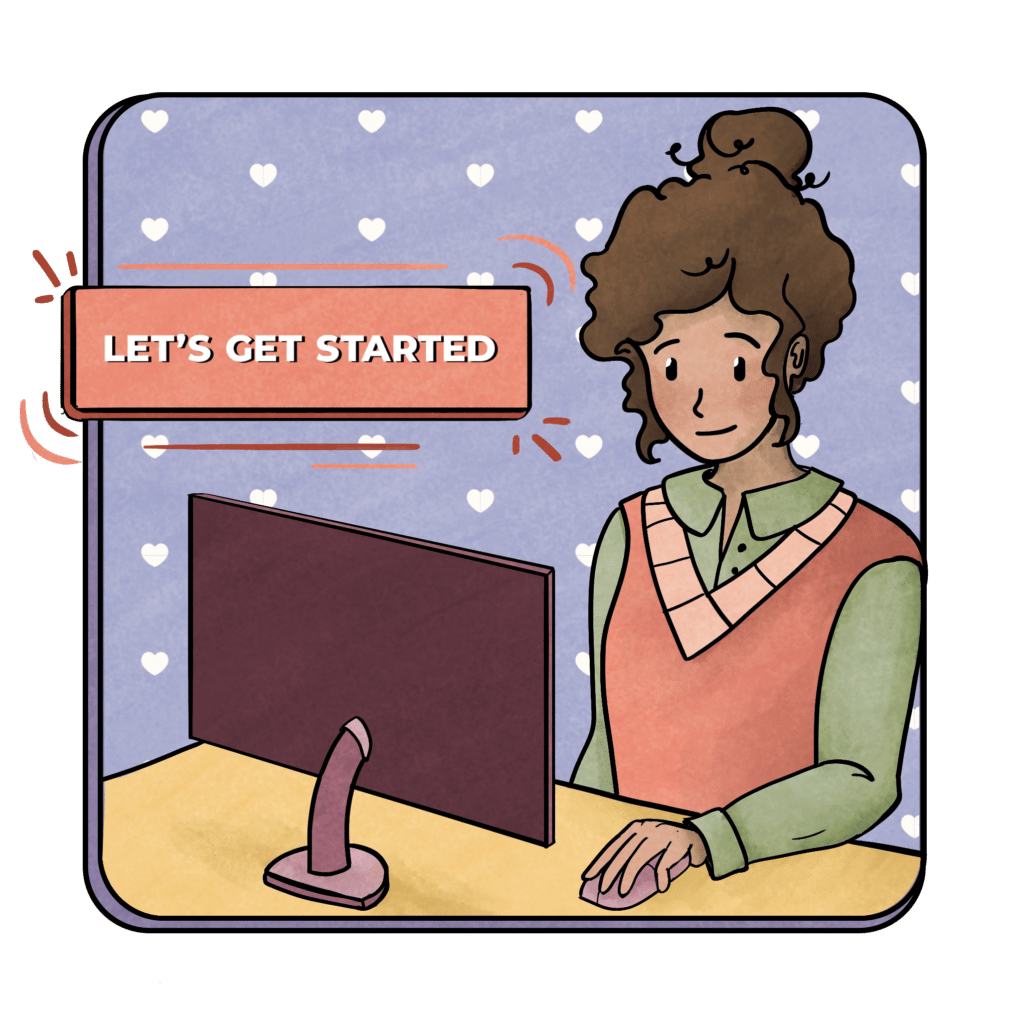Appreciate is a word that we often use but rarely pause to understand fully.
In our frenetic lifestyles, it’s easy to miss out on the profundity and complexity of this term.
The concept of appreciation goes beyond simple gratitude—it encompasses respect, admiration, and even an increase in value over time.
To truly appreciate something or someone means acknowledging its worth and expressing sincere thanks for its existence or actions. So let’s dive into the fascinating world of ‘appreciate’!
Table of Contents:
- Tracing the Evolution of ‘Appreciate’
- Unraveling the Dual Meanings of Appreciation
- Expressing Appreciation Effectively
- Unleashing the Power of Appreciation
- Misunderstandings About Showing Appreciation
- The Art Of Receiving Appreciation
- FAQs in Relation to Appreciate
- Conclusion
Tracing the Evolution of ‘Appreciate’
The history of words often mirrors societal changes, and ‘appreciate’ is a prime example. Its journey from its inception to today’s usage provides an intriguing glimpse into language evolution.
Ayres’ Interpretation of ‘Appreciate’
In his 19th-century work “The Verbalist,” Albert Ayres asserted that the term “appreciate” should be strictly used to mean “to set a value on something.” He was critical about using it in contexts implying admiration or enjoyment, considering such use improper and divergent from its original intent.
Ayres’ perspective emanated from deep pride in preserving linguistic purity. However, this viewpoint may seem rigid in our current era, where languages rapidly appreciate assets with dynamic evolutions. If you’re interested in how language evolves, Word Play Page from Miriam Webster offers insightful details regarding other dual-meaning terms.
Contemporary Acceptance of Diverse Meanings
Taking stock now would reveal few adherents to Ayres’ school of thought as we have broadened our understanding considerably since then. Both senses – valuing someone or something and increasing in value – are widely accepted without any additional complaints related to their appropriateness within contemporary parlance.
We’ve come around (or appreciated if you will) the flexibility offered by this versatile word which can express both gratitude (“I greatly appreciate your help”) and economic growth (“My property has appreciated”). This accrual of added richness makes ‘appreciation’ one thing highly valued within our vocabulary.
Unraveling the Dual Meanings of Appreciation
The term ‘appreciate’ holds a dual significance in our lexicon. It serves as an expression of gratitude or admiration and also signifies an increase in value.
‘Appreciate’: A Word for Gratitude
We often use ‘appreciate’ in everyday conversations to express thanks or recognition. For instance, when you say, “Your help is greatly appreciated,” it’s your way of showing sincere gratitude towards someone’s assistance.
This usage goes beyond simple thankfulness. When we request others to “appreciate” a complex situation, we ask them to understand its intricacies and acknowledge its gravity. Similarly, saying, “I’d appreciate it if this stays confidential,” illustrates current usage where the definition means to be fully aware of. I wouldn’t say I appreciate (ahem) using the word in this context because, usually, what follows is something rather unpleasant. Merriam-Webster Dictionary explains further about appreciation here.
‘Appreciation’: The Financial Connotation
Beyond expressing acknowledgment, the word ‘appreciate’ has another vital role, especially within financial contexts. This second meaning refers to growth over time – compounding interested in an investment comes to mind here or how quality wines gain intrinsic worth with age.
An example would be rapidly appreciating assets which indicate that the asset’s value has increased since acquisition. This might occur due to market demand changes, a company’s performance improvement, or simply the passage of time, which adds accruals on investments. These examples illustrate current usage where ‘appreciate’ signifies growth rather than acknowledgment.
Expressing Appreciation Effectively
The ability to express appreciation effectively is a skill that can be developed and refined. The essence of this lies in sincerity, specificity, and timeliness.
Making Employees Feel Appreciated
In making employees feel appreciated, your approach should blend authenticity with strategy. A simple thank you note or appreciative nod can significantly boost morale while illustrating the current usage of positive reinforcement within your organization’s culture.
Moreover, offering constructive feedback privately helps employees identify areas they need to improve upon while feeling supported by management. This balance between praise and constructive criticism fosters an environment where employees are motivated yet still greatly appreciate their work being recognized.
Teaching Children About Appreciation
School-aged children rapidly absorb values imparted at home and school – teaching them about appreciation lays the groundwork for empathy and gratitude later on in life.
Talking openly about good things happening during each day encourages kids to recognize positivity around them – something parents should deeply appreciate. Reading books together, such as The Berenstain Bears Count Their Blessings (A family favorite of ours and our four children) could serve as effective tools in conveying these concepts through relatable stories.
Beyond recognizing external factors, though, we must teach our young ones how hard someone worked on something, whether it’s baking cookies or building a toy car, which instills great pride in one’s accomplishments while simultaneously acknowledging another person’s effort.
Lastly, just like adults, children enjoy hearing words when they do something right, so don’t hold back from giving due credit.
Unleashing the Power of Appreciation
The power of showing appreciation is often underestimated, yet it holds immense potential in shaping our relationships and personal well-being. By expressing gratitude or admiration for what someone has done or accomplished, we can build an uplifting atmosphere that encourages progress and appreciation of each other. Here, I am mindful that we can appreciate the person simply for who they are and not for what they accomplish. As parents and founders of a company with many people working for us, we don’t want the feeling of appreciation to only be attributed to the outcome and work product. We appreciate people for who they are AND what they do.
Small Gestures – Big Impact
Sometimes, it’s the smallest gestures that make the most significant impact. An appreciative nod serves as an example of such small but meaningful acts. This simple gesture communicates your acknowledgment without having to say anything at all.
In fact, non-verbal forms like this are perceived as more genuine than verbal expressions due to their spontaneous nature. This illustrates the current usage where body language plays a crucial role in conveying feelings effectively.
Pride Unveiled – Profound Gratitude Expressed
To express great pride or profound gratitude requires sincerity above everything else. You need to recognize another person’s efforts with an understanding similar to how one would appreciate fine wine – not just for its price tag but also for its quality.
According to Positive Psychology research, acknowledging hard work makes employees feel appreciated while reinforcing their sense of purpose, which boosts morale at home and professionally.
Misunderstandings About Showing Appreciation
Fear of sounding insincere when showing appreciation often discourages people from expressing their true feelings.
However, these concerns should never deter us from voicing our genuine sentiments, especially when others around us greatly appreciate them.
Dodging Insincerity – The Right Approach
To avoid seeming insincere while expressing thanks, be specific about what you’re grateful for and why those things highly matter to you. Being precise rather than vague ensures clarity, thereby adding authenticity and making everyone involved understand better, thus feeling deeply valued.
Finding a balance between being expressive without going overboard might seem tricky initially; however, it becomes more accessible through practice. Paying attention to cues helps gauge whether recipients are comfortable receiving compliments regularly. If unsure, always remember: A little sincere compliment goes beyond empty flattery.
Appreciation, often underestimated, can shape relationships and well-being. Small gestures like a nod can have big impacts. Expressing deep pride or gratitude requires sincerity, acknowledging others’ efforts boosts morale. Despite fears of insincerity, expressing genuine sentiments is crucial; specificity adds authenticity to thanks given. Balance in expression becomes easier with practice.
The Art Of Receiving Appreciation
Reception of appreciation, an aspect often overlooked in discussions about gratitude and praise, is a crucial part of the equation. However, for various reasons, many individuals find it challenging to accept compliments graciously.
Why We Struggle With Praise: A Deeper Look into Self-esteem Issues and Fear of Arrogance
An underlying lack of self-confidence can make people feel uncomfortable or unworthy when they receive compliments. This discomfort arises from their doubts about their abilities and achievements. Many of us are taught as children at home, at school or later in life at work and church the virtues of humility and being humble. This has a way of seeping into our psyche and can make receiving praise and appreciation difficult.
When in doubt, simply saying ‘Thank you’ is the perfect and reliable way to accept praise. I challenge you not to feel compelled to reciprocate and thank the person. It is hard, yet necessary. This is because you aren’t self-deprecating your own praise; in turn, you are creating the space for the person praising you to fully express their feelings. They do want to get it all out.
In addition to this issue with self-worth, there’s another common hurdle – fear of appearing arrogant. Some worry that acknowledging a compliment might give off the impression that they are boasting or conceited. Again, sincerely receive the praise and reply with a heart-felt ‘Thank you.’
A Guide To Handling Praise Gracefully: Balancing Humility And Acknowledgment
- Balanced Response: The key lies in balancing humility and acknowledgment while responding to praises. It’s essential not just to brush off the compliment but also to avoid letting it inflate your ego excessively.
- Simplicity Is Key: More often than not, simple responses like “Thank you” suffice for showing gratitude without seeming arrogant.
- Persistent Practice: Comfortability with receiving appreciation doesn’t happen overnight; it requires practice over time.
FAQs in Relation to Appreciate
What it means to appreciate someone?
To appreciate someone means acknowledging their efforts, contributions, or qualities. It involves expressing gratitude and recognizing the value they bring into your life.
Does appreciate mean enjoy?
‘Appreciate’ can imply enjoyment, but its primary meaning is to recognize the worth of something or someone. It’s about valuing rather than just enjoying.
What does ‘we really appreciate that’ mean?
The phrase ‘we really appreciate that’ signifies deep gratitude towards another person’s action, gesture, or contribution.
Is it OK to appreciate someone?
Absolutely. Expressing appreciation strengthens relationships and boosts morale. Just ensure your appreciation is sincere and specific for maximum impact.
Conclusion
Understanding ‘appreciate’ and its dual meanings is a journey into the heart of our language.
We’ve delved deep into its evolution, from Albert Ayres’ perspective to the modern acceptance of multiple interpretations.
The duality in appreciation – gratitude or an increase in value – adds depth to this simple word that we use daily.
Expressing it effectively can be an art form that profoundly impacts relationships and self-esteem.
Misconceptions about showing appreciation may hold us back, but sincerity and balance are essential.
And let’s not forget receiving praise gracefully; it’s just as important as giving it.
If you’re a busy mom looking for ways to show your child’s teachers or coaches how much they’re appreciated, The Appreciation Company is here for you. We simplify group gifting so everyone feels valued without adding stress to your hectic life. Start expressing appreciation more easily today by and get started with The Appreciation Company.
Give a Group Gift Today
Send notes, photos, videos, and funds in seconds.
No signup costs and no apps to install. Simply share a link so others can contribute.




